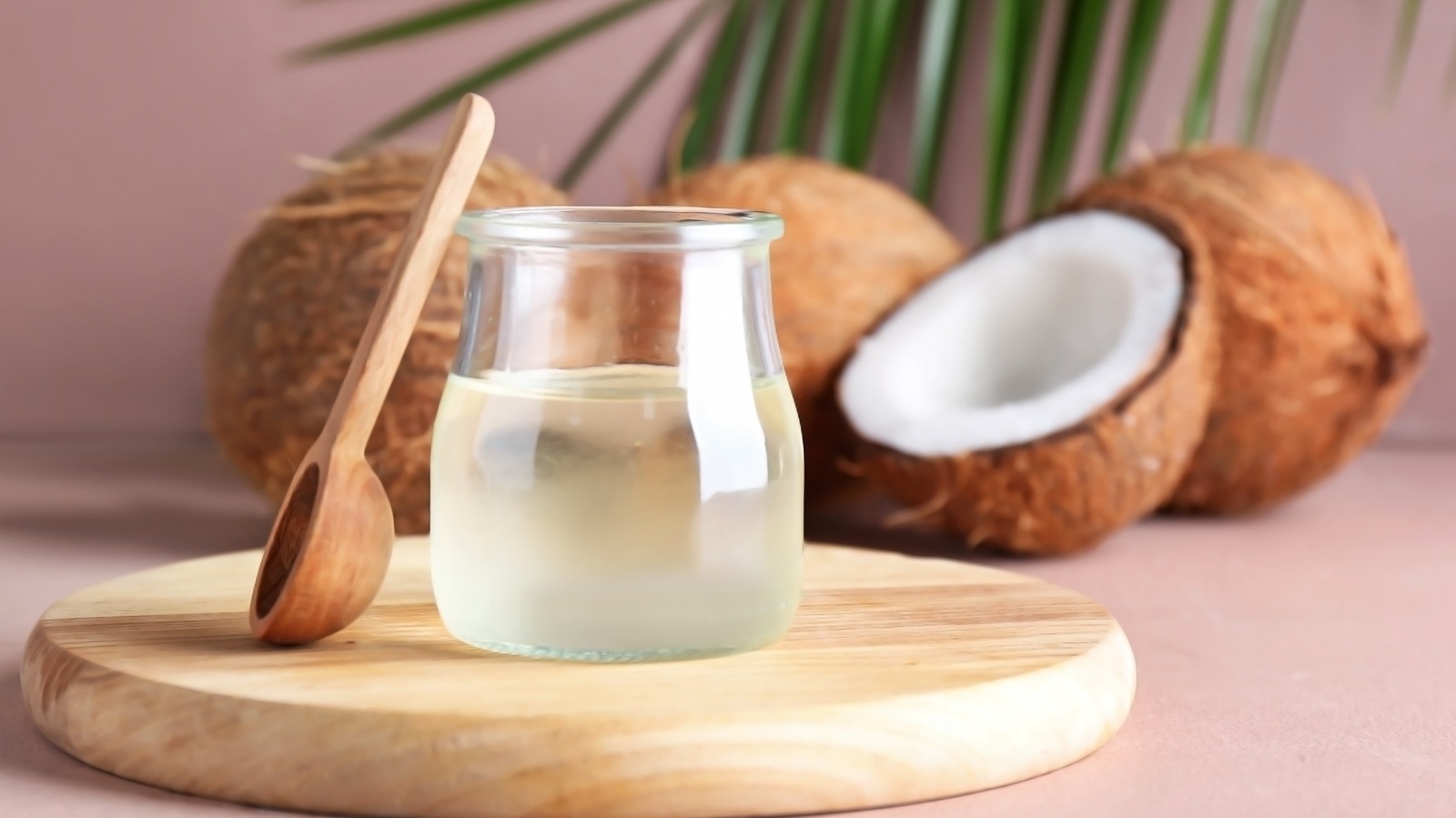Traditional baking projects tend to rely on some staple, go-to ingredients like eggs, sugar, flour, and of course, a type of fat. Many times that means good old-fashioned butter, but you'll also find recipes for oil-based confections that rely on canola, vegetable, or even olive oil. When it comes to flavor and function, though, coconut oil is a baker's best friend.
Not only can it contribute that delicious essence of the namesake fruit, but it's also perfect for anyone looking to vegan-ize their favorite treats. The great news is, if you're hoping to start converting your recipe collection — or even make a one-time swap in a pinch — the ratio for substituting coconut oil in baking couldn't be simpler to remember. It's an easy, entirely even one-to-one exchange for the fats in your formula.

With that rule in mind, you can start to explore the many benefits of baking with coconut oil, and how it will help to enhance your creations. How coconut oil works for your creations If you've ever bought a jar of coconut oil, you may have noticed that at times it appears solid, while at others it's clearly more of a liquid form. This has to do with the melting point of the stuff.
In the summer, for example, if your kitchen cabinets clock in above the 70 degree Fahrenheit range, you're going to have a pourable product on your hands. Below that temperature though, the oil solidifies. This helps to make it even easier to substitute in baking, as you can use the warmer liquid version whe.
















